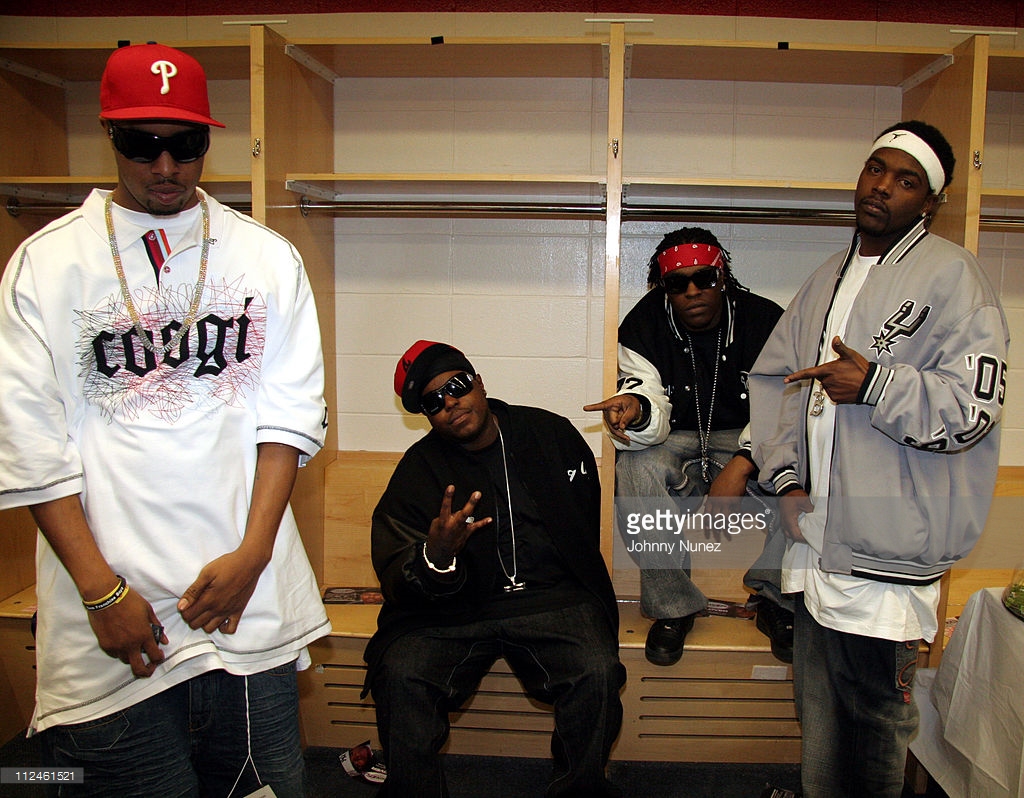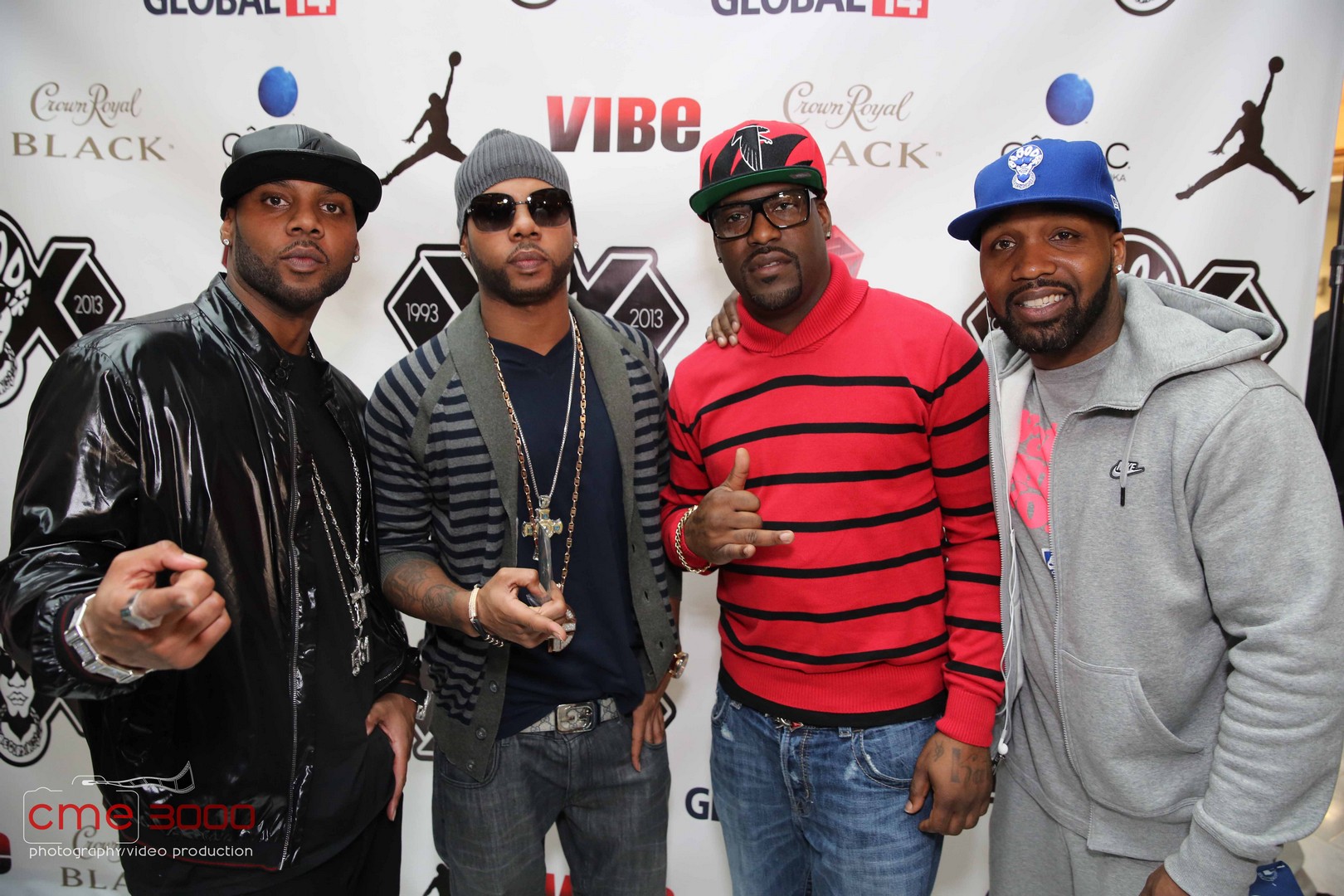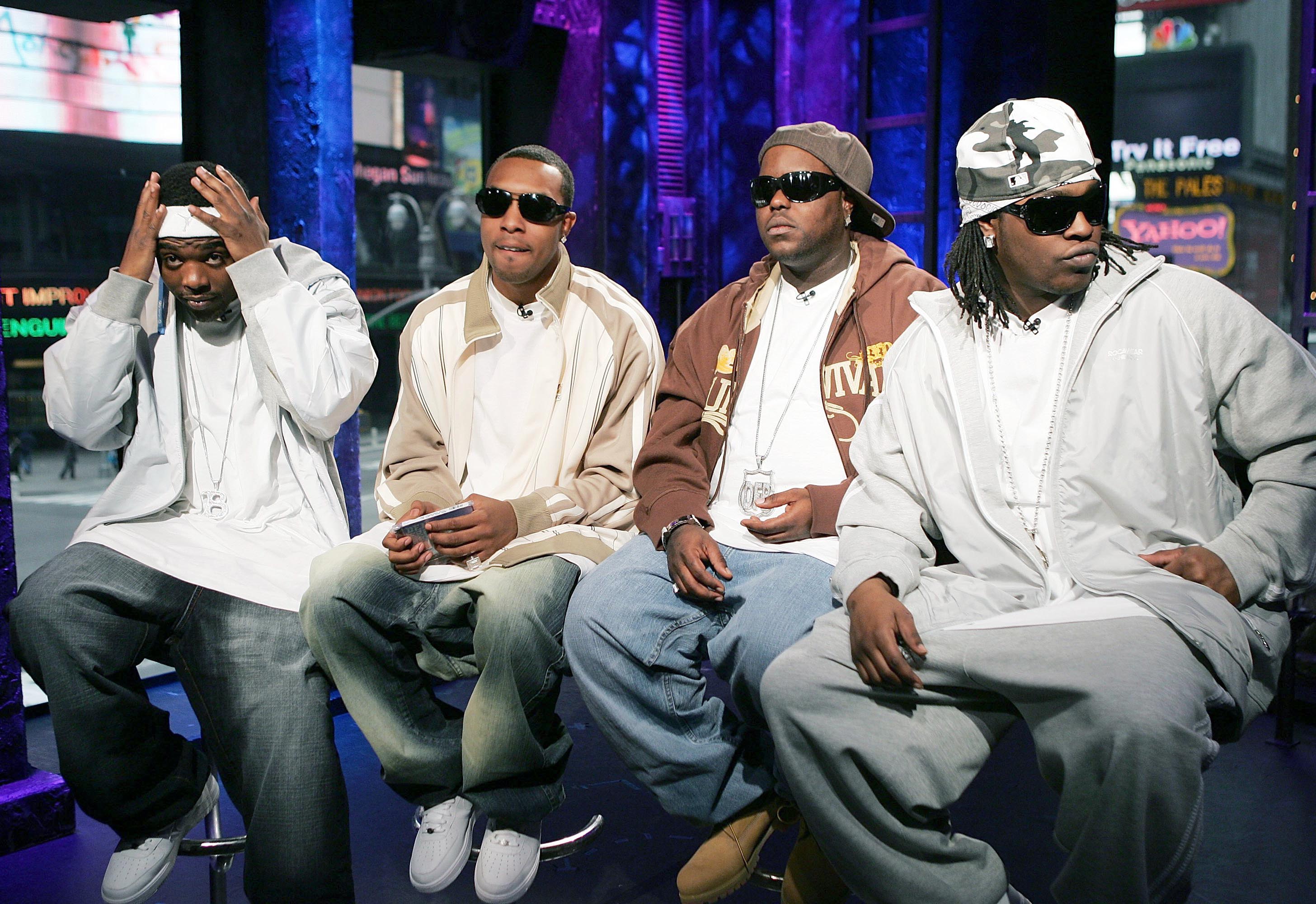Have you ever found yourself wondering about the financial standing of your favorite music groups from back in the day? It's a bit like looking through a time capsule, isn't it? People are often curious about the money side of things, especially for groups that made a big splash and then, you know, sort of faded from the absolute spotlight. We're going to talk about Dem Franchize Boyz today, and what we might gather about their net worth, particularly when considering what financial publications like Forbes might look at. So, it's almost a deep dive into how these figures come together.
There's a genuine fascination with how much artists earn, and Dem Franchize Boyz, with their catchy tunes and unique sound, certainly left their mark on the music scene. Their hits, like "Lean Wit It, Rock Wit It" and "I Think I Love Her," were pretty much everywhere for a while. It makes sense, then, that people would want to know what that success translated into financially for the members. We'll explore the various ways musical acts typically build their wealth, and what that could mean for this particular group, basically.
Estimating the net worth of musical artists, especially those not currently topping charts or touring stadiums, can be a bit tricky, to be honest. Forbes, as a prominent financial magazine, usually relies on publicly available information, industry insights, and careful calculations to come up with their figures. For groups like Dem Franchize Boyz, it's more about piecing together their earnings from album sales, streaming, tours, and other ventures. We'll try to put some context around these estimates, because, you know, it's not always straightforward.
Table of Contents
- The Dem Franchize Boyz Story
- Who Are Dem Franchize Boyz?
- How Musicians Make Money: A Closer Look
- Estimating Dem Franchize Boyz' Net Worth
- The Forbes Perspective and Challenges
- What About Their Legacy and Ongoing Earnings?
- Frequently Asked Questions About Dem Franchize Boyz
The Dem Franchize Boyz Story
Dem Franchize Boyz burst onto the hip-hop scene in the early 2000s, bringing with them a distinct sound that really captured the attention of many listeners. Hailing from Atlanta, Georgia, they were a significant part of the snap music movement, which was, you know, a pretty big deal at the time. Their style was characterized by simple, catchy beats and memorable hooks, making their songs incredibly popular in clubs and on radio stations. They signed with Universal Records, which helped propel them to national recognition, and that was, like, a huge step for them.
Their debut album, "Dem Franchize Boyz," came out in 2004, but it was their second album, "On Top of Our Game," released in 2006, that truly cemented their place in music history. This album featured their biggest hits, including "Lean Wit It, Rock Wit It" and "I Think I Love Her," which both became massive successes. These songs didn't just top charts; they became cultural touchstones, defining a certain era of hip-hop. It's fair to say they had a significant impact, arguably.
While their peak commercial success was concentrated in the mid-2000s, their influence on southern hip-hop and the broader music landscape is still felt by some. They helped popularize a sound that many artists would later build upon. Even after their major label run, the group continued to create music and perform, albeit on a different scale. This continued activity, even if less visible, still contributes to their overall financial picture, as a matter of fact.
Who Are Dem Franchize Boyz?
Dem Franchize Boyz is a musical group made up of four talented individuals who came together to create their unique sound. Each member played a crucial role in shaping the group's identity and delivering those memorable tracks that fans still enjoy. Knowing who they are helps us appreciate their collective journey and what they brought to the music world, basically.
Here's a quick look at the members who formed Dem Franchize Boyz:
| Member Name | Role in Group | Notes |
|---|---|---|
| Buddie (Bernard Leverette) | Rapper | Key vocalist and lyricist. |
| Pimpin' (Jamal Willingham) | Rapper | Contributed to the group's distinctive flow. |
| Parlae (Maurice Gleaton) | Rapper | Often recognized for his unique delivery. |
| Jizzal Man (Michael Johnson) | Rapper | Added a distinct voice to their tracks. |
These four artists worked together to craft the songs that became anthems for a generation. Their collective talent was a big part of their appeal, and that, you know, really resonated with listeners. They were a tight-knit unit, and their synergy was evident in their music, which is why they were so successful, arguably.
How Musicians Make Money: A Closer Look
When we talk about a music group's net worth, it's important to understand the different ways artists generate income. It's not just about selling records anymore; the music industry has changed a lot over the years. For a group like Dem Franchize Boyz, their earnings would have come from a mix of sources, especially during their peak years, but also from ongoing revenue streams. So, let's explore some of these avenues, in a way.
Music Sales and Streaming
In the early 2000s, physical album sales (CDs) were still a significant source of income for artists. Dem Franchize Boyz would have earned royalties from the sales of their albums and singles, like "Lean Wit It, Rock Wit It." As time went on, digital downloads became more prominent, and now, streaming services like Spotify and Apple Music are the dominant way people listen to music. Artists earn a fraction of a cent per stream, which can add up to substantial amounts if their songs are played millions of times. This is a bit different from how things used to be, you know.
The royalties from these sales and streams are usually split between the artists, their record label, producers, and songwriters, according to their contracts. For a group, that money is then further divided among the members. So, while a song might be incredibly popular, the actual take-home pay for each artist from sales and streaming can be smaller than one might think, virtually.
Touring and Live Performances
For many musicians, touring is a major source of income. Concerts, festivals, and club appearances can bring in significant revenue through ticket sales. Dem Franchize Boyz would have toured extensively during their most popular period, playing to large crowds and earning performance fees. These fees vary widely depending on the venue size, the group's popularity, and the demand for their shows. It's a very direct way to connect with fans and earn money, actually.
Even after their peak, groups often continue to perform at smaller venues, college events, or nostalgia tours. These appearances, while perhaps not as lucrative as stadium shows, still contribute to their earnings over time. The costs associated with touring, like travel, crew, and equipment, also need to be factored in, of course, because that cuts into the profit, you know.
Merchandise and Endorsements
Selling merchandise like t-shirts, hats, and other branded items at concerts and online is another common way for artists to make money. Fans love to show their support, and buying merch is a direct way to do that. The profit margins on merchandise can be quite good, providing a steady stream of income for popular acts. This is a pretty straightforward revenue stream, in a way.
Endorsement deals, where artists promote products or services for a brand, can also be very lucrative. If Dem Franchize Boyz had any brand partnerships during their active years, those would have added significantly to their income. These deals are often based on the artist's public image and reach, making them a valuable asset for brands looking to connect with a specific audience. It's a bit like being a spokesperson, you know.
Publishing and Royalties
Beyond sales and streams, artists also earn money from publishing royalties. This comes from the use of their music in various forms, such as radio play, television shows, movies, commercials, and even video games. Every time a song is played publicly or used in a media production, the songwriters and publishers are owed a fee. This can be a very long-term source of income, arguably.
For Dem Franchize Boyz, if they wrote or co-wrote their songs, they would continue to receive these publishing royalties as long as their music is being used. This passive income stream can be quite substantial over many years, especially for songs that become classics or are frequently sampled. It's a bit like a pension plan for musicians, in some respects, which is pretty cool.
Estimating Dem Franchize Boyz' Net Worth
When it comes to putting a specific number on Dem Franchize Boyz' net worth, it's important to remember that these figures are almost always estimates. Public figures, especially those not actively involved in large, transparent business ventures, rarely disclose their full financial details. Financial publications like Forbes use a combination of public data, industry averages, and informed speculation to arrive at their numbers. So, it's not an exact science, by the way.
For Dem Franchize Boyz, their peak earning years were undoubtedly during the mid-2000s when their albums were selling well and they were touring extensively. During this period, they would have seen significant income from album sales, digital downloads, and performance fees. However, a large portion of this income would have gone towards record label advances, production costs, management fees, taxes, and personal expenses. It's a very different picture from just looking at gross revenue, you know.
Considering their success with major hits and their impact on a popular music subgenre, it's reasonable to suggest that during their most active period, the group collectively generated millions of dollars in revenue. However, after all the splits and expenses, the individual net worth of each member would be considerably less. Many artists, especially in hip-hop, also invest their earnings in other ventures, real estate, or businesses, which can further diversify their assets but also make net worth harder to track. That's just how it is, basically.
Without official disclosures or detailed financial reports, any specific net worth figure for Dem Franchize Boyz that you might find online is likely an educated guess. These estimates often range widely, reflecting the difficulty in accurately assessing private wealth. What we can say is that their period of mainstream success certainly provided them with significant financial opportunities, which is, you know, a good thing for any artist. They definitely made a mark, and that had financial implications, too.
The Forbes Perspective and Challenges
Forbes is widely respected for its wealth estimations, but even they face challenges when it comes to individuals or groups whose financial dealings are not publicly traded or extensively documented. Their methodology typically involves looking at past earnings from music sales, touring, endorsements, and any known investments. For artists from a decade or more ago, this can be quite a task. It's not like they have open books for everyone to see, you know.
One of the main hurdles is the lack of transparency. Record deals are often complex, with varying royalty rates, advances, and recoupment clauses. Artists might not see a large portion of their early earnings until the label has recouped its investment. This means that even if an album sold millions, the artist's immediate take-home pay might have been modest. It's a pretty intricate system, honestly.
Furthermore, personal spending habits, investments, and financial decisions made by individual members can drastically affect their personal net worth. One member might have invested wisely, while another might have had higher expenses or made different choices. Forbes usually tries to account for these factors when possible, but it requires a lot of digging and analysis. That's why, you know, these estimates are just that: estimates, more or less.
For a group like Dem Franchize Boyz, it's unlikely that Forbes would have a regularly updated, official net worth figure published in the same way they do for global billionaires or active pop stars. Any figures would likely come from older reports or industry analyses that aggregate data from various sources. The absence of a recent, widely cited Forbes number for them doesn't mean they didn't earn substantial money; it just highlights the private nature of their finances. It's just a reality for many artists, actually.
What About Their Legacy and Ongoing Earnings?
Even though Dem Franchize Boyz might not be releasing new chart-topping hits every year, their music continues to be played and enjoyed. This means they still earn some income from their past work. Streaming services, radio play, and licensing for TV shows or movies provide ongoing, albeit smaller, royalty checks. This long tail of earnings can add up over time, which is pretty cool. Learn more about hip-hop history on our site, and link to this page exploring music industry finances.
Their legacy in the snap music movement also means their songs are part of a significant cultural moment. This can lead to opportunities for reunion shows, special appearances, or features on compilation albums. These sporadic opportunities contribute to their financial well-being and keep their name relevant in the music world. It's a bit like a recurring dividend from their past efforts, you know.
Many artists from their era also transition into other roles within the music industry, such as production, songwriting for other artists, or even starting their own labels. These ventures can create new income streams that aren't directly tied to their performance as a group. So, their financial picture might be more complex and diversified than just their earnings from their hit songs. That's often the case for musicians, basically.
Ultimately, while a definitive "Forbes net worth" figure for Dem Franchize Boyz might remain elusive to the public, it's clear that their impact on music brought them significant financial rewards during their prime. Their continued presence in the cultural consciousness through their classic songs ensures some level of ongoing income, allowing them to benefit from the lasting power of their music. It's a testament to their talent and the enduring appeal of their sound, arguably, even today.
Frequently Asked Questions About Dem Franchize Boyz
What was Dem Franchize Boyz' biggest hit?
Dem Franchize Boyz is probably best known for their song "Lean Wit It, Rock Wit It." That track really took off and became a massive success, pretty much defining their sound and bringing them widespread recognition. It was, you know, a huge moment for them in the mid-2000s, and it's still a song people remember and enjoy, arguably.
Are Dem Franchize Boyz still making music?
While Dem Franchize Boyz haven't been as prominent in the mainstream music scene in recent years as they once were, the group has continued to release music periodically and perform. They might not be topping the charts like they used to, but they still have a presence. So, yes, in a way, they are still involved in music, just perhaps not on the same scale, you know.
What genre of music is Dem Franchize Boyz?
Dem Franchize Boyz are primarily known for their contributions to the snap music genre, which is a subgenre of hip-hop. Snap music originated in Atlanta and is characterized by its minimalist production, catchy chants, and emphasis on finger snaps. Their style was very much rooted in this sound, which was, like, a big part of the southern hip-hop movement of the 2000s, honestly.



Detail Author:
- Name : Tess Stoltenberg
- Username : alexandro72
- Email : mweissnat@yahoo.com
- Birthdate : 2004-02-15
- Address : 657 Stoltenberg Summit New Alexanderhaven, GA 50469
- Phone : 1-479-703-2942
- Company : Bartoletti, Windler and Blick
- Job : Nursery Worker
- Bio : Aut ut architecto dolores vel corrupti consequatur. Dolorem natus ut quo modi in molestiae nihil. Nesciunt aut rem molestiae.
Socials
instagram:
- url : https://instagram.com/willy5130
- username : willy5130
- bio : Alias magnam ratione iusto magnam voluptatem adipisci sed. Quis quos placeat molestiae velit alias.
- followers : 5981
- following : 2464
tiktok:
- url : https://tiktok.com/@willy_metz
- username : willy_metz
- bio : Molestiae maxime ratione saepe officia consequuntur numquam natus.
- followers : 2662
- following : 24
facebook:
- url : https://facebook.com/metz2018
- username : metz2018
- bio : Fugit officia cupiditate quo natus. Eaque vel sit optio praesentium.
- followers : 993
- following : 2020